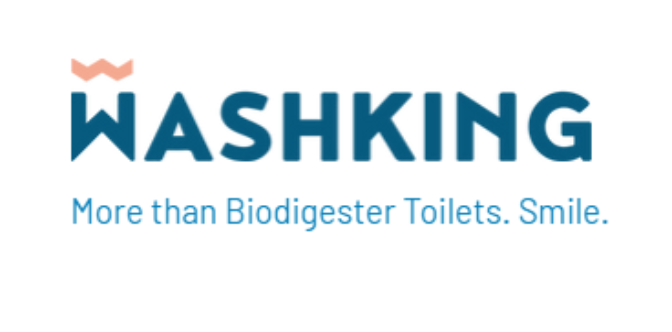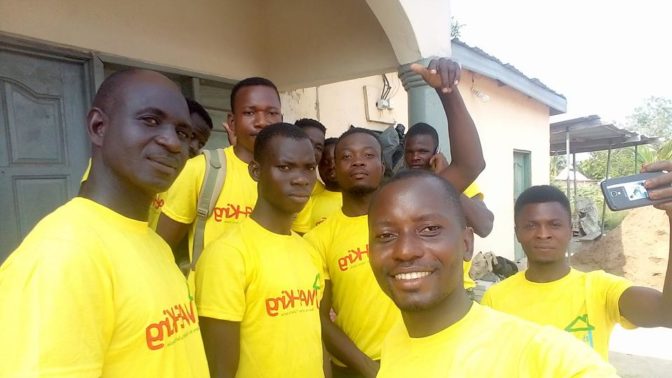WASHKing
WASHKing provides low-income and under served communities with access to sanitation products at an affordable price with their biodigester toilets.


What we should know about you
Questions answered by Dieudonne Kwame Agudah, CEO & Founder
1. What is your biggest success as an entrepreneur?
Two main things spurred me to start WASHKing: (1) my passion for the environment and desire to help solve the deep socio-ecological challenge of poor sanitation rampant in my community and (2) the need to create an avenue to generate revenue, to support the non-profit NGO I founded, in order to sustain non-profit activities and maximize impacts.
Most part of my life was spent in challenging low-income settings where I have first-hand experience with the devastating social, environmental, and economic effects of poor sanitation. So, in 2013 I decided to set up the environmental NGO, G-YES (Global Youth in Environmental Sustenance) because of my belief in the power of the youth to take action to protect their environment and health. G-YES achieved some successes but there was funding challenge along the line of operation. Thus, I decided that it would be better to set up a separate company to generate revenue to support the NGO. My other intention for this decision was my belief that when the enterprise was successful it could better help address the environmental issues and achieve greater impacts.
So, seeing WASHKing not only generating revenue but also playing a significant role in ensuring that those who need adequate sanitation most – low-income and underserved communities – have adequate toilets with young people being empowered with gainful jobs and transferable skills that I consider a success. We started by building just 15 toilets in our founding years. Despite challenges we have had to surmount, we have now been able to build over 550 toilets serving estimated 5,500 low-income and underserved people. This is a considerable success.
2. What is the best thing about being a member of empowering people. Network?
Many enterprises just like mine often face difficulties in accessing high-quality skilled personnel during initial stages to support and realize the vision of the enterprise because of challenges including the inability to afford to pay for such qualified expertise. This becomes obvious for social enterprises where the focus is not to generate huge profits. Thus, being part of an important network with necessary tailored community support in terms of missing expertise, linkages, and access to funding opportunities critical during the early stage of the enterprise is spot-on. This network support has not only been empowering as I grow my enterprise sustainably and make improved sustainable social impacts but also equipped me to empower others.
3. What recommendation would you give to someone who thinks about starting a social enterprise?
I will start with the fact that being a social entrepreneur can be highly rewarding and exciting. However, it can also be extremely hard and demanding. So, be clear on this and adopt the right mindset right from the start. You need to find a value with your solution that people will be willing to pay for while addressing your peculiar social problem. This may not come easy so you need to persist to reiterate value until you get it right as it can make or unmake your dream of starting and running your social enterprise. COVID-19 has increased the need to have good risk mitigation strategies as part of our entrepreneurial endeavors. Remember to have that. Do not be afraid to ask for help even if it calls for taking a trustworthy mentor for yourself and your business. Learn from your mistakes and those of others, remain flexible, and pivot when you have to and keep an eye on continuous innovation and why you have started in the first place.
Additional achievements
Awards